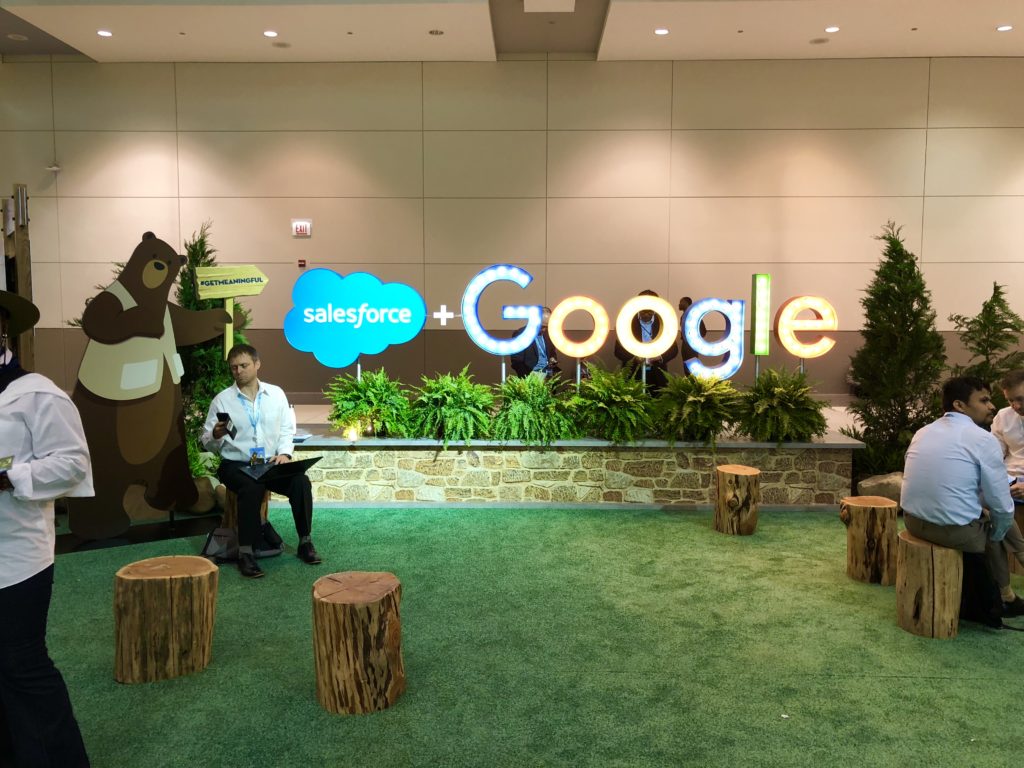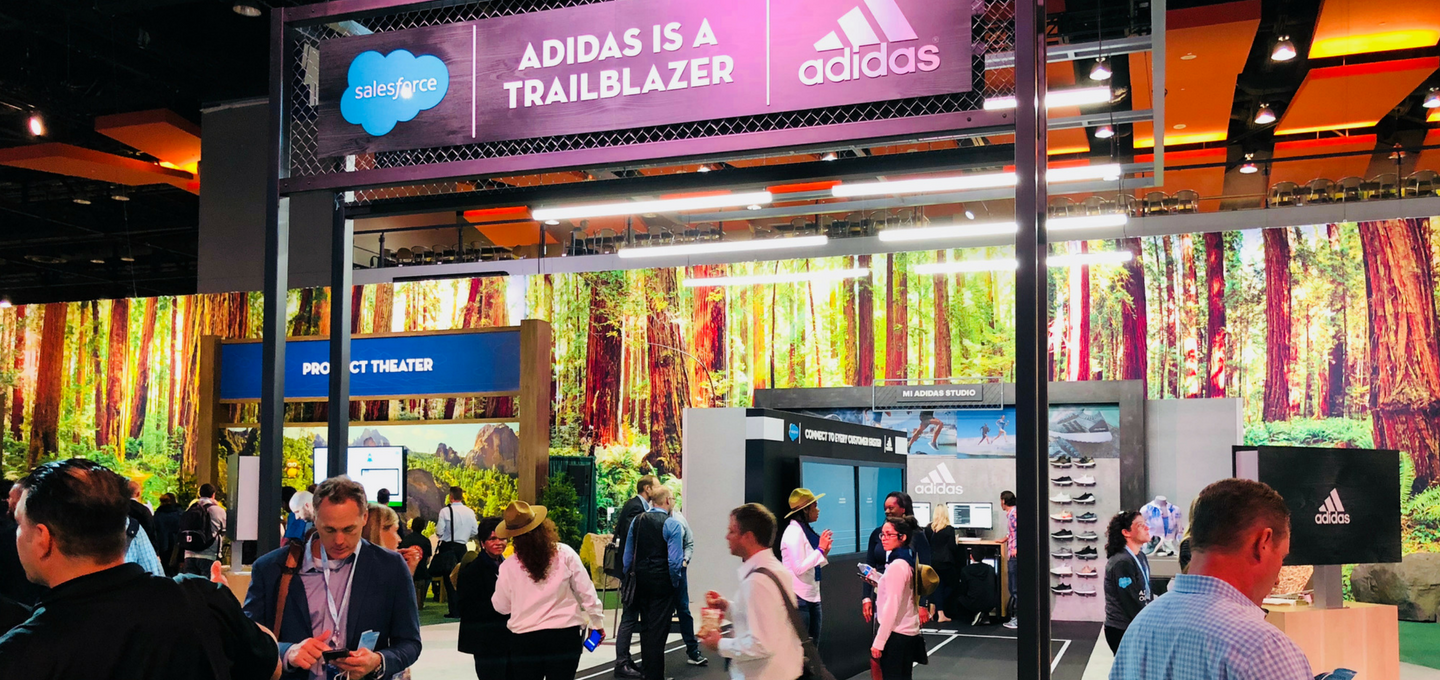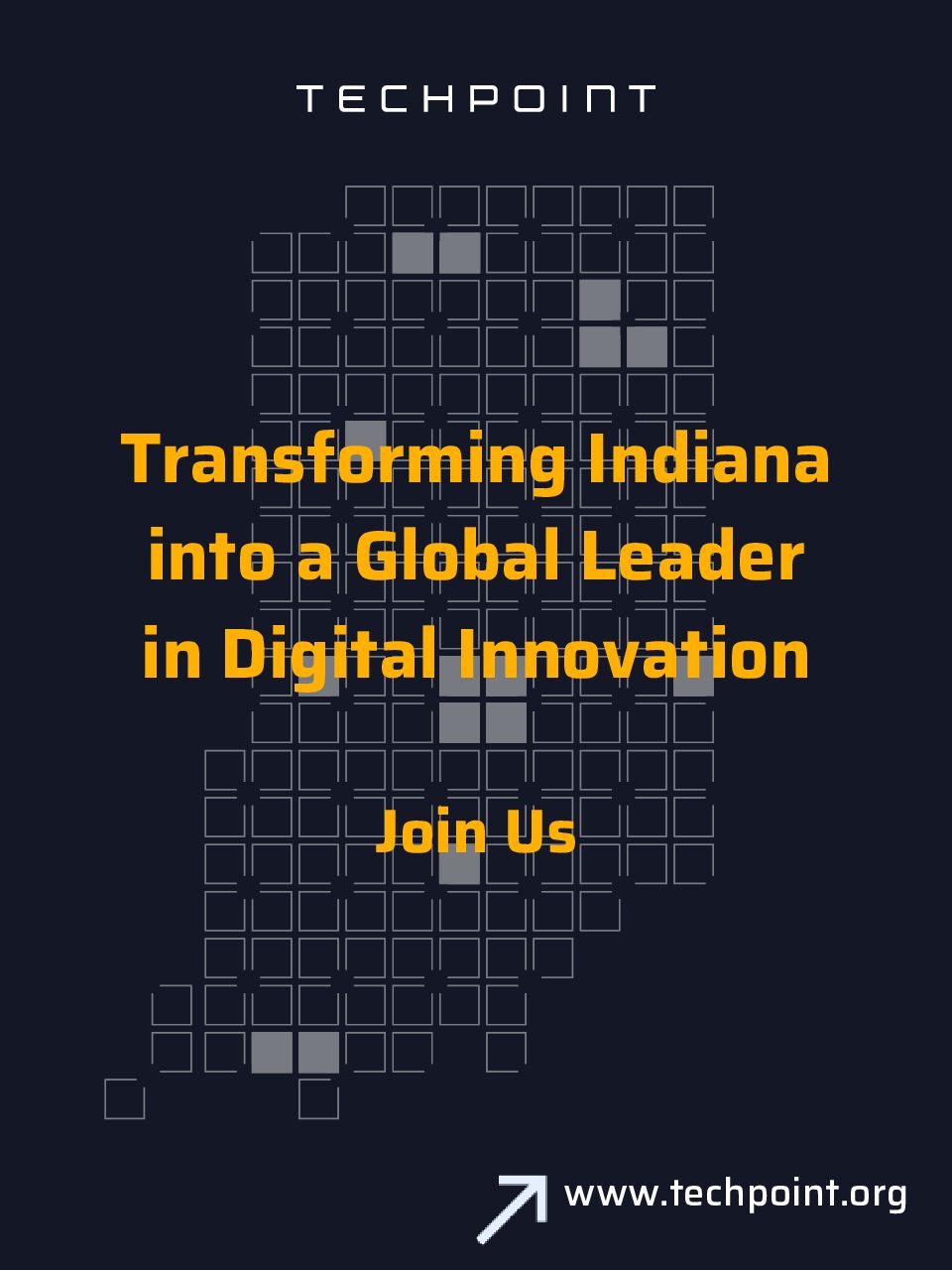Will Salesforce drive customer success in the fourth industrial revolution?
Sara Croft, TechPoint’s Senior Director of Communications, attended Salesforce’s Connections conference on June 12-14, 2018 in Chicago. This is the second of a series of posts about the Salesforce ecosystem and its impact on Indianapolis. You can read the first story here.
Anyone in the business of, well, business, knows that the customer is always right. That adage is now at least a century old but the concept still reigns true, and customers surely haven’t forgotten it. With an ever-increasing digital transformation happening in how customers interact with products and brands, customer success is no longer a start and end point, but now a perpetual cycle.
As customers shift their behavior due to an increasingly digitized world, companies must decide not whether, but how, to keep up. Salesforce’s creed, spoken from the keynote stage at 2018’s Salesforce Connections event by President and Chief Product Officer Bret Taylor, is to fuel the need to offer the best customer experiences by staying ahead of the curve with technologies representative of a “fourth industrial revolution.”
Those technologies include artificial intelligence and machine learning, 3D printing, autonomous vehicles, biotech, and other leading-edge innovations that are rapidly making their way into consumer’s lives. “Behind every one of these devices is a customer. Because of these technologies, these customers are more connected than ever before,” said Taylor.
The term “fourth industrial revolution” isn’t a buzzword, but it is a new concept coined as recently as 2016. Salesforce isn’t new to the term, either. Senior directors have written about artificial intelligence and its place in scaling personalization for customer journeys for their website, and there’s a learning module on their online platform Trailhead, which offers a curriculum for training and learning Salesforce-related tasks and projects. All of this is to say that the company sees the fourth industrial revolution to represent profound change and major societal transformation, which will shape and shift how customers buy products and how marketers sell them.

Translating this into a customer journey is not something that many businesses have figured out, yet. “Less than 15 percent of companies feel ready for the fourth industrial revolution,” said Taylor. Compare this with a 2017 State of Marketing Salesforce report which states that 64 percent of marketers believe it will take a transformational shift in their organization to produce personalized customer journeys, and the message becomes loud and clear.
When a potential customer goes online to engage with your brand and buy your product, they have expectations that are based on previous purchases with brands who can provide the new, innovative experiences they want. Salesforce wants to power this innovation and increase the ability for marketers to provide innovative customer experiences and interactions at scale. To convert that 64 percent into “Trailblazers” — the term for individuals in the Salesforce community who are partners and use the product — the company continues to release new products and host events like Connections to assist marketers of all experience levels and budgets.
With the help of customers like Adidas, Ticketmaster, US Bank, and thousands of Salesforce experts and employees, the company unveiled new products and features at this year’s Connections event in Chicago to help marketers address this growing need to activate their data to produce innovative marketing campaigns.
Adidas digital transformation includes the use of ADIBOT, a Salesforce Einstein-powered chatbot that, according to the demo during the keynote session, can help you with your online orders such as change shipping addresses and alter orders after you’ve already made your purchase. For Ticketmaster, it’s about delivering emails that represent the type of music and artists you want to listen to based on purchase history and customer behavior from social, mobile, email and desktop combined. The audience got to see real examples of both the customer experience and the marketer’s experience using Salesforce Marketing Cloud products such as Einstein and the newest product integration with Google Analytics 360.

“There’s huge value in the marketer having all of this data in one single dashboard. They can do their job easier, and quicker,” said Bobby Jania, vice president of product marketing at Salesforce, referring to the Google Analytics 360 integration. Marketers can now take Google Analytics 360 data and pair it with their email, mobile and web interactions from Salesforce Marketing Cloud products and view in a single journey analytics dashboard.
“It’s all about taking the in-store experience to the e-commerce site,” said Meghann York, director of product marketing at Salesforce. “Bigger companies want to replicate that experience of having a customer base of 100 to when you have millions of customers.”
That’s where artificial intelligence, through Salesforce’s aptly named Einstein product, can be put into practice like through the Ticketmaster example. For US Bank, it’s about innovating within the financial industry to integrate multiple data systems with Salesforce so they can examine their customer’s full portfolio and then use Einstein to recommend products their users actually want and need.
Customers do not all look alike, and Salesforce unveiled B2B Commerce as part of their Commerce Cloud at Connections to expand the customer experience to wholesale buyers. B2B Commerce offers authenticated logins, multiple payment types to include purchase orders and other common methods of wholesale buyer payments, and complex shipping functionality to allow buyers to purchase orders and ship them to multiple locations at multiple times. This hints at the company’s desire not necessarily to scale their product offering to provide more features, but to see and value that wholesale buyers are customers with a different set of needs for personalization and customer success.
There’s still the question of what consumers are willing to give up for these personalized experiences. For a brand to know and keep track of your purchases, you must give them the right to host and access that data. Mary Kay Huse, EVP of Product Management at Salesforce, said 62 percent of consumers are uncomfortable with how companies use their data. GDPR, which stands for General Data Protection Regulation, was no stranger to sessions and workshops at the event, but it is clear that marketers are still caught in between the need to provide personalized customer experiences while responsibly managing and respecting the vast amounts of data they collect on their customers.
What’s most notable about Salesforce’s product line and newly unveiled features is that the company has focused on building innovative products and helping marketers actually apply them. Many conferences miss the mark with talk of lofty, futuristic goals of applying machine learning to email marketing without offering concrete examples and the ability to actually go out and incorporate them into your marketing campaigns tomorrow. Connections did not disappoint in this respect.
“This is what makes marketing fun,” said York, referring back to the keynote session mentioning the fourth industrial revolution. “We’re giving them the insight they need to then go and do the fun part of marketing, rather than trying to stitch together all of the pieces they need to get the insight to begin with.”
Stay tuned for my last and final piece on Salesforce Connections next week, focusing on Salesforce’s employer brand and focus on equality.




